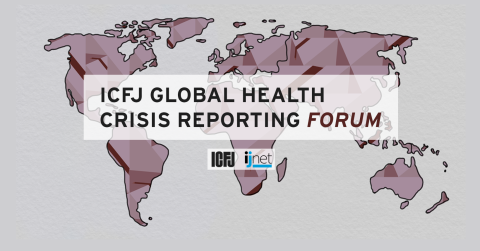
Our Global Health Crisis Reporting Forum, in partnership with ICFJ's International Journalists' Network (IJNet), is no longer active.
As part of our Forum project, available in five languages, journalists could learn from health professionals and other experts, through a series of webinars on everything from health disinformation to newsroom leadership to the latest research on the disease. They collaborated with other journalists from across the world on the Forum's vibrant Facebook group. See our impact here.

